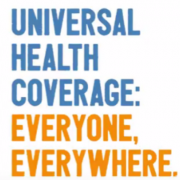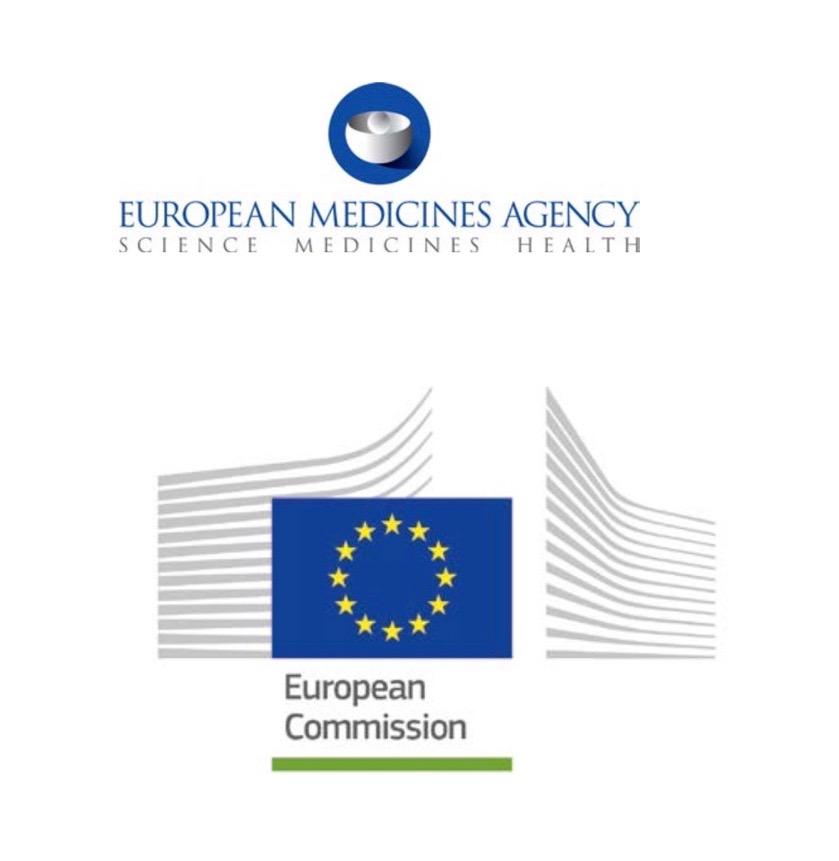EAHP EU Monitor - 30 March 2018
The EAHP EU Monitor is a regular round up of news relevant to hospital pharmacy in Europe.
You can subscribe to receive the EAHP EU Monitor by email HERE.
EAHP launches Self-assessment tool and SILCC programme
During the 23rd EAHP Congress in Gothenburg (21-23 March, 2018), the European Association of Hospital Pharmacists (EAHP) launched the online Self-assessment tool for hospital pharmacists and the Statement Implementation Learning Collaborative Centres (SILCC), developed in collaboration with national associations as well as our network of national implementation ambassadors, with the aim of moving towards the implementation of the European Statements of Hospital Pharmacy.
The self-assessment tool is an online tool allowing hospital pharmacists to assess the level of implementation of the European Statements within their hospitals. It also allows hospital pharmacists and other healthcare professionals to evaluate the state of their hospitals, compare themselves with other hospitals around Europe, and access a tailor-made action plan, with a broad range of evidence-based resources.
The SILCC programme will allow hospital pharmacists to visit hospitals from other member countries while learning pharmacy procedures linked to the European Statements. EAHP is providing a reward system for SILCC Hosts (hospitals providing training) and limited financial help for SILCC Fellows (hospital pharmacists receiving the training).
During the 23rd EAHP Congress, the implementation team presented and explained the SAT to interested participants, also showcasing the SILCC initiative to potential SILCC hosts and fellows.
Learn more about SAT HERE
Learn more about SILCC HERE
See video HERE
 WHO - World Health Day coming up!
WHO - World Health Day coming up!
The World Health Organisation's (WHO) 'World Health Day 2018' will be on April 7th, with the theme: 'Universal Health Coverage: Everyone, Everywhere'. A key message put forward by the WHO is that universal health coverage (UHC) is about ensuring all people can get quality health services, where and when they need them, without suffering financial hardship. In that regard, they stress that no one should have to choose between good health and other life necessities. Currently, around 12% of the world's population spends at least 10% of their household budget on health expenses for themselves, a sick child or other family member, incurring in so-called "catastrophic expenditures". WHO points out that UHC is not only key to people's and nations' health and well-being, but is also feasible, taking into account that no one size fits all, but that every country can do something to advance UHC. Finally, the WHO claims that making health services truly universal requires a shift from designing health systems around diseases and institutions towards health services designed around and for people. The World Health Day 2018 on April 7th provides an opportunity to highlight the importance of UHC.
More HERE
EMA: Multi-stakeholder workshop to further improve the implementation of the Paediatric Regulation
The European Medicines Agency (EMA) and the European Commission organised a workshop on the 20th of March, following the publication of the Commission’s ten-year report on the implementation of the Paediatric Regulation and the state of paediatric medicines in the European Union. The aim was to discuss potential ways to improve the implementation of the Regulation, by exploring paediatric needs, the timely completion of paediatric investigation plans (PIP) and the handling of PIP applications, making it a key step in the development of an action plan to address challenges identified with medicine development for children in Europe. Various stakeholders were invited, including patients, academia, healthcare professionals and industry.
More HERE
.jpg) New DG Sante study - Cross-border cooperation: capitalising on existing initiatives for cooperation in cross-border regions
New DG Sante study - Cross-border cooperation: capitalising on existing initiatives for cooperation in cross-border regions
The European Commission’s Directorate General for Health and Food Safety (DG Sante) has released a study mapping the state of play and optimal ways forward for building cooperation in cross-border healthcare (CBHC). It maps EU-funded cooperation projects for the period 2007 to 2017 in EU and EEA countries and Switzerland; provides insight into opportunities and challenges for cross-border cooperation in healthcare; and offers guidance to local and regional authorities and other parties who are interested in starting a health-related cooperation project. The findings will provide input into the report on the operation of the Cross-border Healthcare Directive, which will be published later this year.
Based on the data analysed, the study gives some recommendations for those interested in starting a health-related cooperation project. These include economically supporting key players in order to reduce transaction costs, taking into account the limitations of regional networks, and understanding that high-cost capital investments and emergency care tend to have more discernible economic and social benefits, but require more formalised terms of cooperation. The report also points out that the top categories of CBHC initiatives that have received EU funding over the past 10 years are knowledge-sharing and management, shared treatment and diagnosis of patients.
Full report HERE
EPSA – Survey for the Methodology Booklet
The European Pharmaceutical Students’ Association (EPSA) has launched a survey on teaching methodologies and is seeking feedback from pharmaceutical students and recent graduates. EPSA is an umbrella association representing 160.000 pharmaceutical students within 45 member associations from 37 countries across Europe. The Methodology Booklet is an EPSA project that has the objective of collecting pharmacy student’s opinion about teaching methodologies around Europe and sharing them with the faculty deans and professors. This project was developed in 2012/2013 without significant results. It is now being revamped and will be distributed at faculties of pharmacy across Europe, allowing EPSA to showcase what students think about the current methodologies being used in pharmaceutical education and what they want for the future.
The survey will be open until the beginning of May 2018.
Survey available HERE
 EJHP – Drug information centre: challenges of the research process to answer inquiries in hospital pharmaceutical practices
EJHP – Drug information centre: challenges of the research process to answer inquiries in hospital pharmaceutical practices
The online first edition of the European Journal of Hospital Pharmacy (EJHP) has published an original article focusing on the characterization of information requests (IRs) from hospitals received by a drug information centre, according to the resolution of the inquiries. This was done was sampling requests and their respective IRs registered in the drug information centre database from January 2012 to December 2016. IRs from hospitals were classified by the information source, topic and subtopic of the questions, and the number of drugs and the pharmacological or therapeutic group. Of a total 2,500 IRs analysed, 25% did not exhibit conclusive information in the consulted sources, and tertiary literature was the most commonly used source (73%) for IRs from hospitals. The greatest difficulties in finding information were related to off-label drug administration and indication issues (52%) and the most common type of off-label use was related to changes in the original pharmaceutical form of the drug.
Read more HERE
--------------------------------------------------------------

Consultations
EMA-Draft qualification opinion - The European Cystic Fibrosis Society Patient Registry
The qualification opinion provides a draft context of use of the registry for public consultation, describing where this registry is deemed by CHMP as an appropriate data source for post-authorisation studies to support regulatory decision making on medicines for the treatment of cystic fibrosis, together with CHMP's response to the questions posed by the Consortium.
Deadline – 9th April 2018
More information HERE
EMA- Concept paper on the development of a reflection paper on new analytical methods/ technologies in the quality control of herbal medicinal products
Quality control is a prerequisite to assure safe and effective use of (traditional) herbal medicinal products, which are complex mixtures of numerous phytochemical constituents. For the majority of herbal substances, herbal preparations and (traditional) herbal medicinal products the active constituents are not known or are only partly understood. Consequently, EMA is planning to develop a reflection paper that addresses new analytical methods and technologies for the quality control of herbal medicinal products.
Deadline – 30th April 2018
More information HERE
EMA- Draft guideline on safety and efficacy follow-up and risk management of advanced therapy medicinal products
This draft consultation offers the opportunity for proving input regarding the replacement of the 'Guideline on safety and efficacy follow-up - risk management of Advanced Therapy Medicinal Products’, which provides dedicated and specific guidance for ATMPs with regards to the pharmacovigilance system, the identification of risks, the risk minimisation measures, the post-authorisation S&E studies, the management and the reporting of adverse reactions and of the evaluation of the effectiveness of the risk management system.
Deadline – 30th April 2018
More information HERE
EMA- Reflection paper on investigation of pharmacokinetics and pharmacodynamics in the obese population
The specific aims of this reflection paper are to describe how the effects of obesity can be investigated during clinical drug development, provide recommendations on when investigations of the effect of obesity on the PK of a drug should be considered, provide information on specific important considerations for these investigations and discuss how to reflect PK findings in weight/size based dosing recommendations.
Deadline – 31st July 2018
More information HERE






